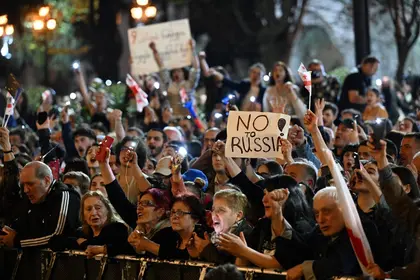Thousands of people have taken to the streets of Tbilisi for the third consecutive day. The peak of the protests was on the evening of April 16, according to Georgian media and Kyiv Post sources reporting from the scene.
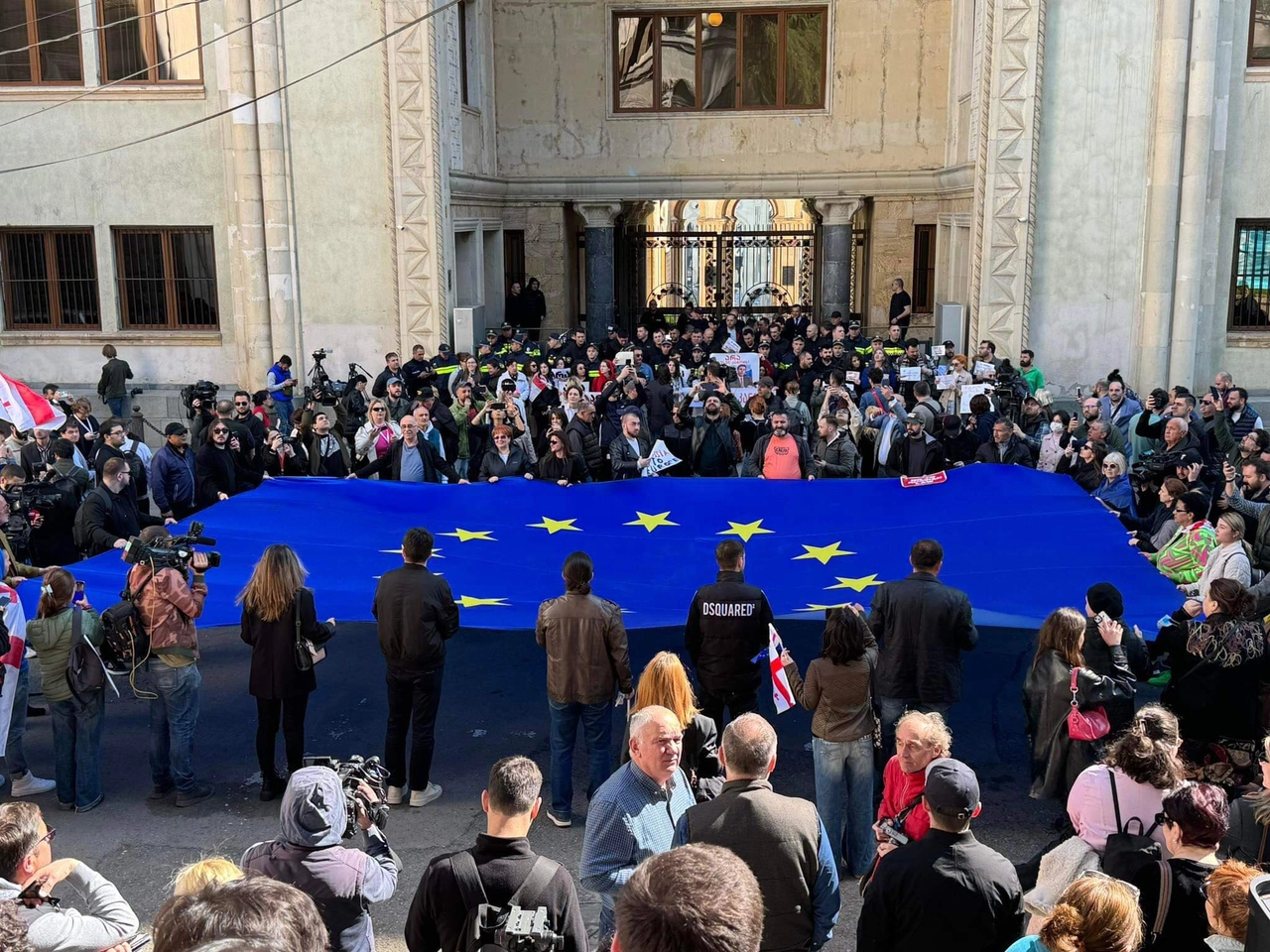
JOIN US ON TELEGRAM
Follow our coverage of the war on the @Kyivpost_official.
The protests were sparked by the authorities’ efforts to push through a law called the “Transparency of Foreign Influence” law. This is not the first time such legislation has been attempted. A year ago, in March 2023, Georgian authorities made a similar attempt, which was met with mass protests, leading to the postponement of the law’s adoption.
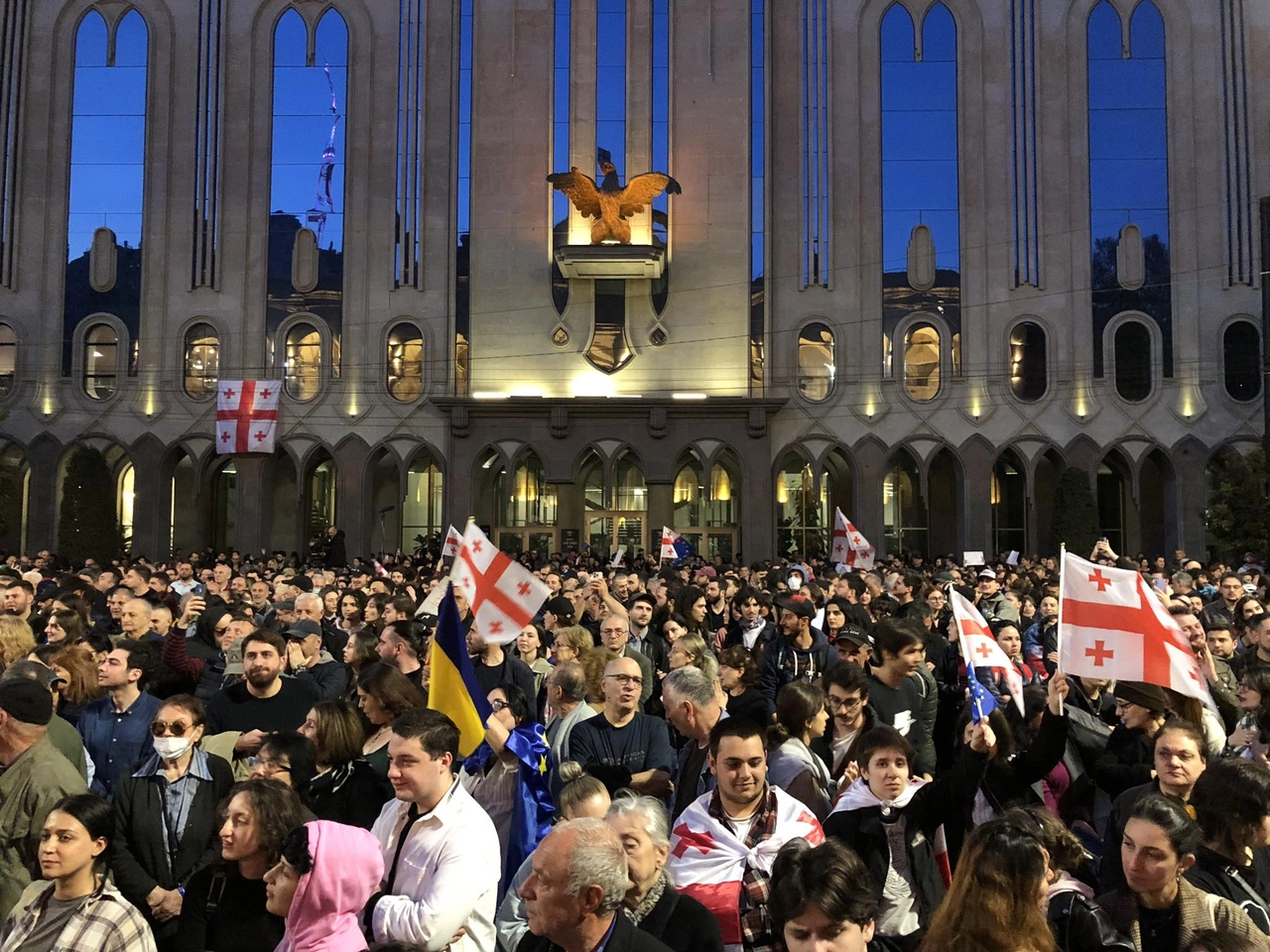
After a two-day delay, the parliament unanimously adopted the controversial bill on April 17, and protests broke out again in the center of Tbilisi.
According to Georgian journalists, this law resembles the Russian “Foreign Agents” law and aims to restrict the activities of non-governmental public organizations, many of which oppose the government and receive funding from non-governmental entities, particularly European and American organizations.

Accept Trump and Get to Mars? No Deal.
The legislation is expected to curtail the financing of organizations through non-governmental means and limit their operational capacities.
Khatia Khasaia, a journalist for Sova.news and eyewitness to the protests told Kyiv Post:
“Perhaps they truly desire this law because non-governmental organizations and media outlets funded by the West pose significant discomfort to the authorities. [Bidzina] Ivanishvili [founder of the Georgia Dream party, which supports the law] himself appears to hold personal animosity towards them. Maybe they seek to create tension before the elections, fostering a hate campaign where they can thrive,” Khasaia told Kyiv Post.
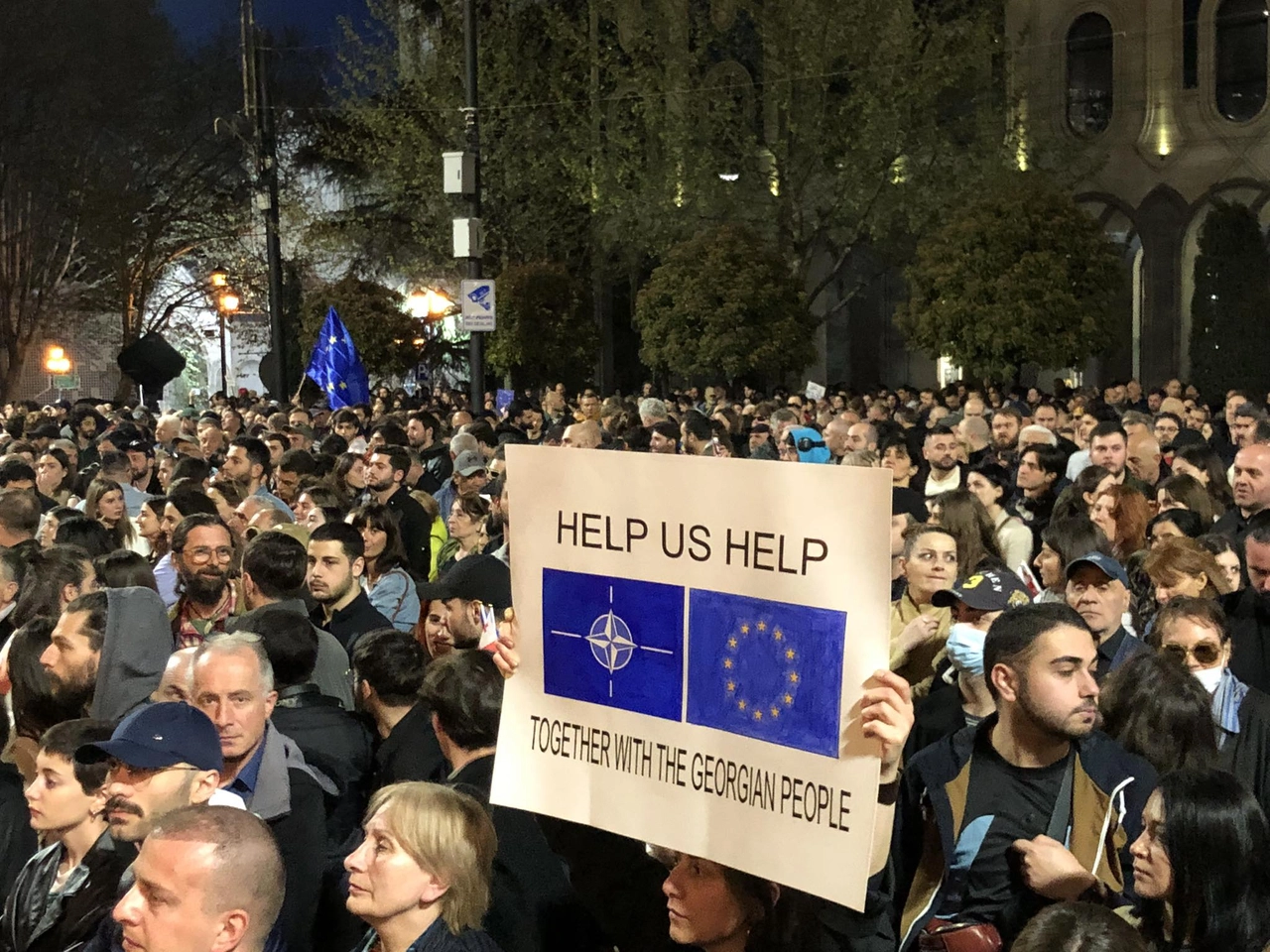
The protests began on April 15 after pro-government factions in Parliament successfully maneuvered the bill through the relevant committee.
This led to an altercation where one opposition deputy, expressing frustration with what he perceived as falsehoods, struck a representative of the pro-government faction, causing a scuffle.
The April 16 protests resulted in the detention of 14 individuals, according to the local media.
Nadim Khmaladze, a Georgian public figure and participant in the Russian-Ukrainian conflict, is currently in Tbilisi. He told Kyiv Post that many protesters view the Georgian government as pro-Russian and suspect that the Kremlin, which opposes the country’s potential pro-European stance, pressures Georgian politicians to enact such laws.
“This law will impede the financing of non-governmental organizations, undermining the West’s efforts to bolster democracy. It will suppress protests and obstruct Georgia’s path toward Europe. Unfortunately, this government shows no intention of joining the European Union and resorts to such tactics to dissuade the West from commencing negotiations on Georgia’s EU accession,” Khmaladze said.
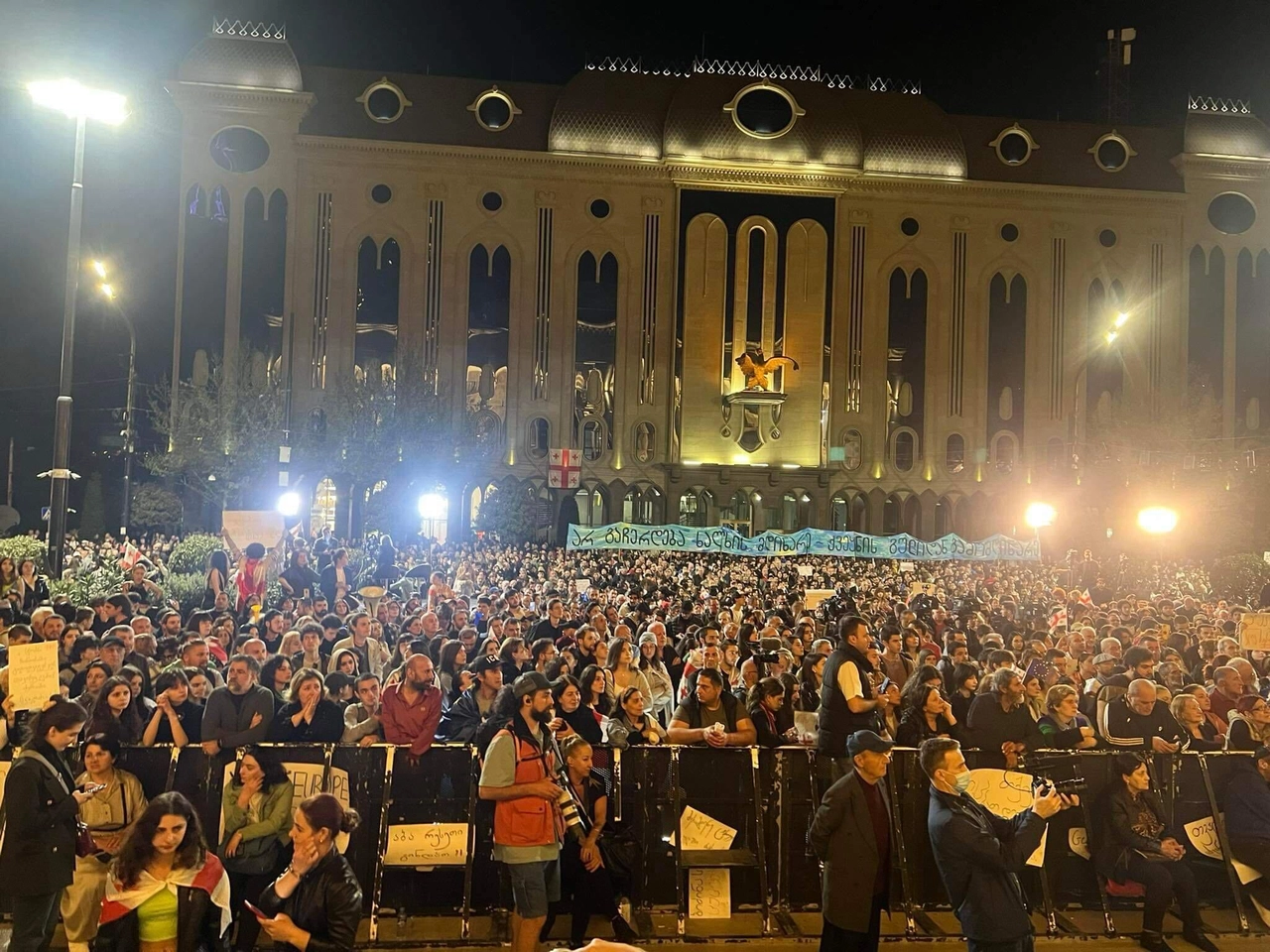
An attempt to pass the law in its first reading is expected Wednesday evening. Khmaladze mentioned that the largest protest will take place in central Tbilisi at 7 p.m. local time. He noted that authorities are deploying additional security forces to the capital’s center.
As a result of the protests, the Georgian parliament once again postponed consideration of the controversial bill. Our sources believe that the authorities will try to wait out the peak of the protests in order to push it through in the coming days.
Meanwhile, after a two-day delay, the parliament unanimously adopted the controversial bill on April 17. Protests broke out again in the center of Tbilisi. However, Khatia Khasaya pointed that even if the law passes its first reading, two more readings are necessary before final adoption.
“Let’s observe the people’s reaction. There are still two more readings ahead before final adoption,” Khasaia concluded.
You can also highlight the text and press Ctrl + Enter


